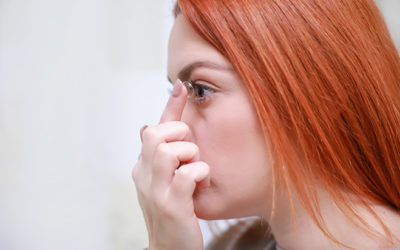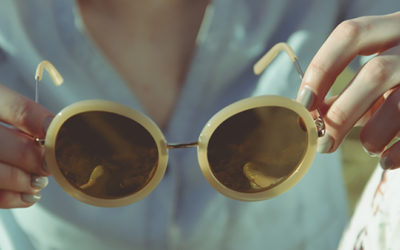How exposure to UV rays can damage our eyes
Don’t leave the health of your eyes up in the air
When it comes ultraviolet (UV) radiation, the first thing most people think is skin cancer.
Eye damage, however, is also related to UV radiation if not addressed appropriately. Whether from natural sunlight or artificial UV rays, prolonged and continuous exposure to UV radiation can cause significant damage to your eyes.

What Is UV radiation exactly?
In 1801, German physicist Johann Wilhelm Ritter discovered that invisible rays just beyond the violet end of the visible spectrum darkened silver chloride-soaked paper more quickly than violet light itself. These invisible rays were eventually called ultraviolet.
Natural UV radiation comes from the sunlight. Artificial sources, such as lasers and tanning beds, can also give off UV radiation.
There are three types of UV radiation:
UV-A
These type of rays can age skin cells and damage their DNA. These rays are linked to long-term skin damage such as wrinkles and are also thought to play a role in some skin cancers.
UV-B
With slightly more energy than UVA rays, UV-B rays can damage skin cells directly and are the main rays that cause sunburns. They are also thought to cause most skin cancers.
UV-C
These rays have more energy than the other types of UV rays, but they do not get through our atmosphere. They are not normally a cause of skin cancer.
UV-A and UV-B radiation can have adverse long- and short-term effects on the eyes and vision, whereas
UV-C is absorbed by the ozone layer and does not present any threat.
Types of eye problems caused by UV rays
Macular Degeneration
UV rays may lead to macular degeneration, a leading cause of vision loss for people over the age of 60.
Cataract
UV rays, especially UV-B rays, may also cause a clouding of the eye’s natural lens, the part of the eye that focuses the light we see.
Pterygium
Pterygium, a type of growth, begins on the white of the eye and can involve the cornea. Eventually, the growth can block vision. It is more common in people who work outside in the sun and wind.
Skin Cancer
Skin cancer around the eyelids is also linked to prolonged UV exposure.
Corneal Sunburn
Corneal sunburn is the result of high exposure to UV-B rays. Long hours at the beach or skiing without proper eye protection can cause this problem. It can be very painful and may cause temporary vision loss.
“Sun protection doesn’t need to be complicated or expensive — it needs to be consistent.”
— Hillary Fogelson
External factors to consider with UV radiation
According to the American Cancer Society, the strength of the UV rays depends on a number of factors, including:
Time of day
UV rays are generally strongest between 10am and 4pm.
Season of the year
UV rays are generally stronger during spring and summer months.
Distance from the equator
UV exposure goes down as you get further from the equator.
Altitude
More UV rays are able to reach the ground at higher elevations.
Also make sure to pay attention to reflections off surfaces as UV rays can bounce off surfaces like water, sand, snow, pavement or grass. This can lead to an increase in UV exposure.
How can you protect your eyes from UV light?
Getting too much sun exposure can be harmful, but in moderation is beneficial.
Wear proper eye protection and hats to block the UV rays. To provide adequate protection for your eyes, sunglasses should:
- Block out 99 to 100% of both UV-A and UV-B radiation
- Screen out 75 to 90% of visible light
- Provide adequate coverage of the whole eye and surrounding skin.
If you spend a lot of time outdoors in bright sunlight, wrap-around sunglass frames provide additional protection from the harmful solar radiation.
Finally, don’t forget about protection for your children and teenagers, who typically spend more time outside in the sun than adults.
If you would like more information about the danger and harm of UV rays in regards to our eyesight, please feel free to email Jenny at jenny@gp-optom.co.nz to set an appointment. We can help you choose eye protection that suits your needs appropriately.
Featured Posts
Why You Should Make the Switch to Contact Lenses
If you wear glasses you probably remember the first day you received your prescription from your optometrist: the excitement you felt at being able to see clearly after…
Looking After Your Eyes This Summer
You know you should wear sunglasses in summer, but what else should you do to protect your eyes from sun damage? Here’s how to look after your eyes this summer.
Address
Cnr Great South Road & Rockfield Road, Greenlane 1051
Phone
09 525 1516
Hours
Mon to Fri: 9am – 5pm
Sat to Sun: Closed
Holidays: Closed



